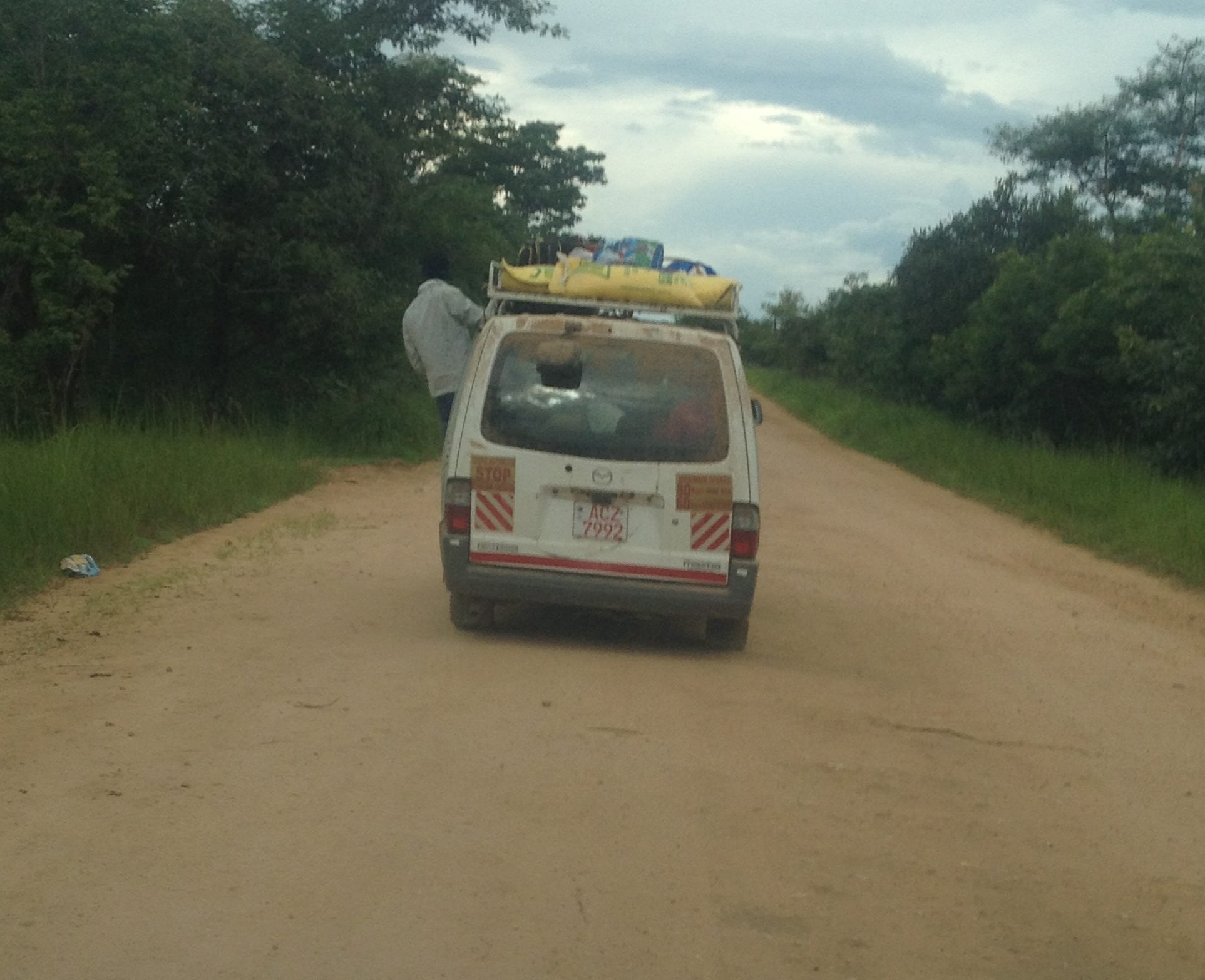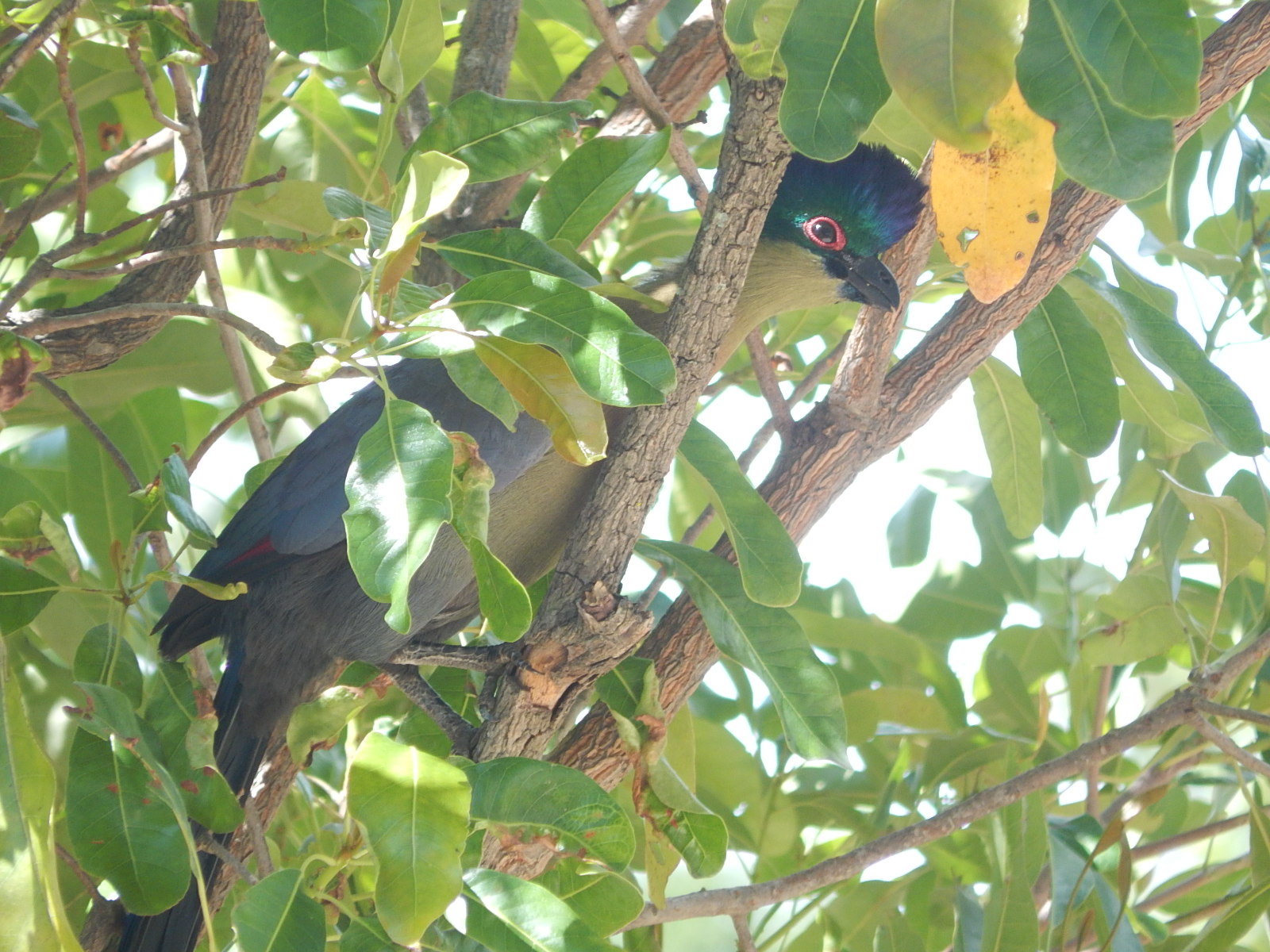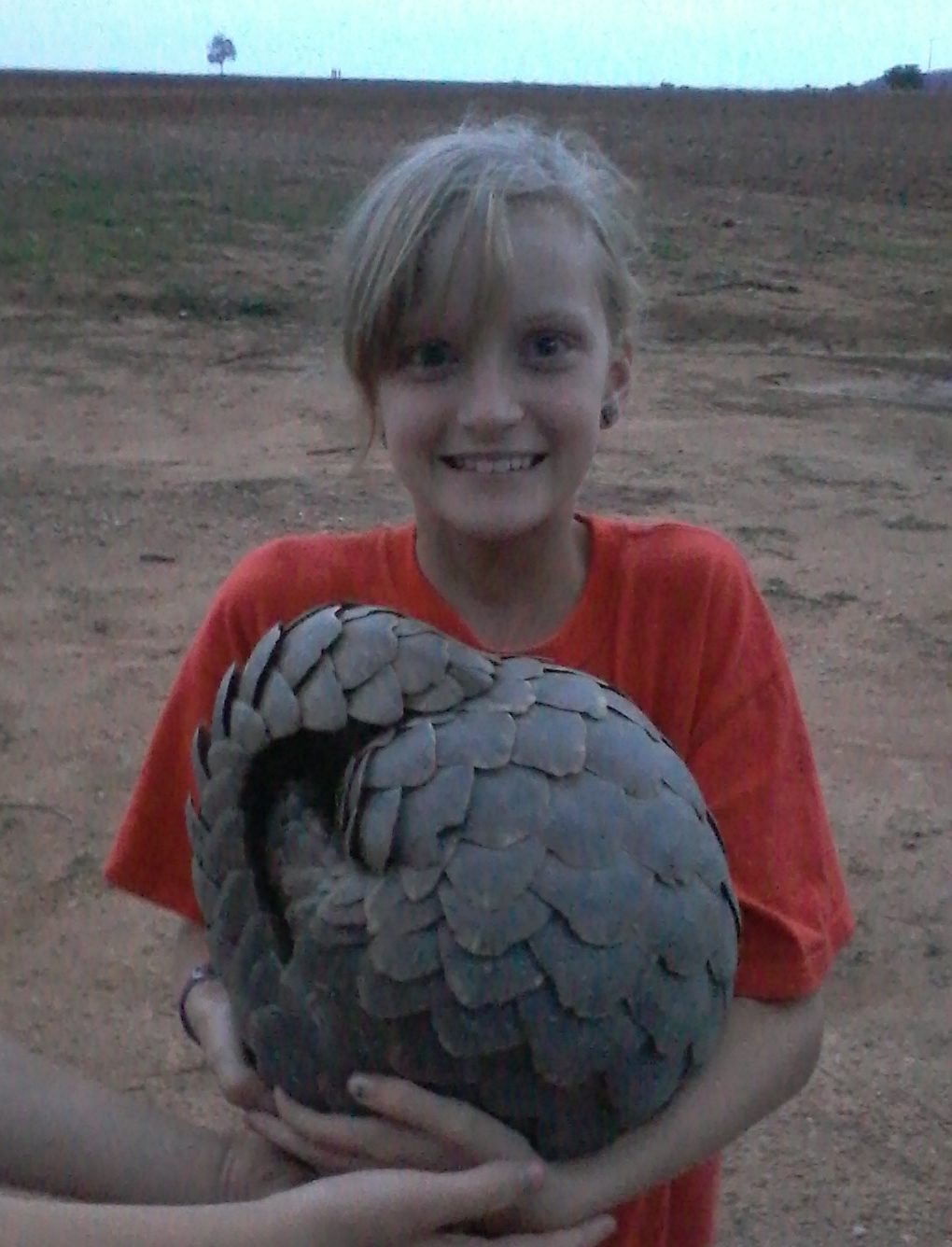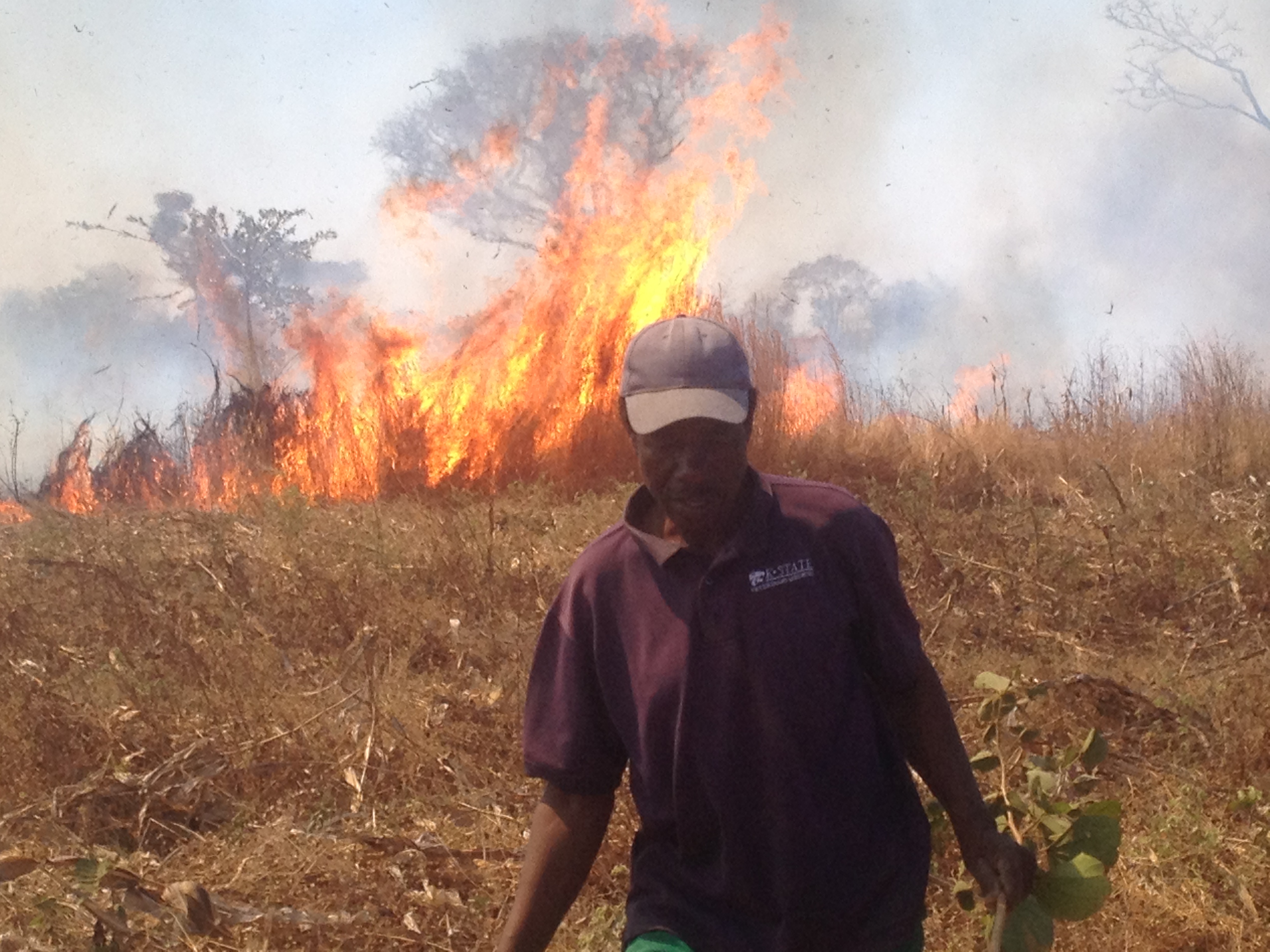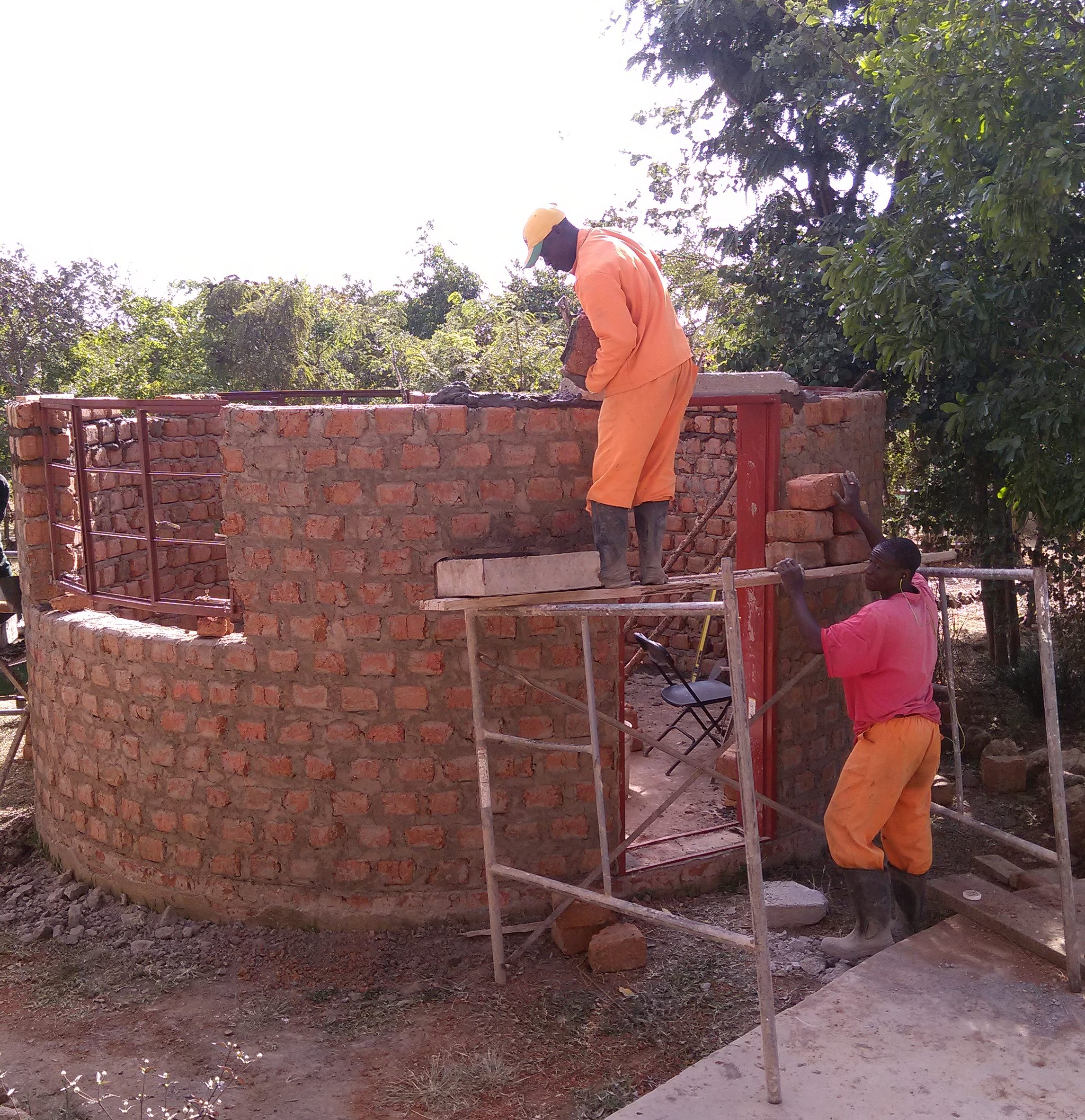
The building crew was building a rondoval at the compound and had gotten to the point where they needed to pour a ring beam for the second floor. In order to make a form they knocked holes through the wall they had just built to put wire through to hold the wood forms. When they were done with the ring beam they would have to fix the holes they’d made. This sort of thing is frustrating to me, because it doesn’t show any foresight to the next few steps and takes more work and time. I called the crew together and asked them how they could do this part of the job more efficiently. I explained that efficient means ‘better and faster,’ as some of them didn’t understand the word. I told them that I had an idea, but I wanted them to come up with some. This isn’t normal for them, they usually wait to be told how to do everything, but I wanted them to take some time to think it through for themselves and see what they could come up with.
It was a fun process to watch. They were very hesitant at first, but soon ideas were being tossed out, and usually shot down by the others. After about 10 minutes of animated talking and sometimes yelling and laughing Langton had an idea, which was to lay the wire in the mortar as they built, rather than makes holes afterwards that would need to be fixed. It was the simplest, easiest and fastest way to do it, and they came up with the idea themselves. I suggested they do it that way next time and congratulated Langton on his good idea. It was great to see the men slapping him on the back and shaking his hand for a job well done. Langton can’t read or write and his English isn’t very good, but he is one of the smartest men on the crew and is always happy and works very hard. The men would remember to do it this way the next time because they were the ones who thought of the idea and were going to take ownership of it, rather than just following the murungu’s instructions. I love those moments!
